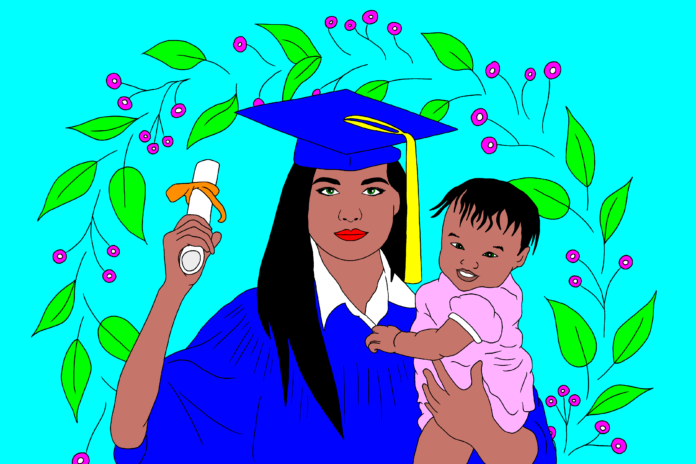UC Davis student parents can find resources and support through WorkLife, the Women’s Resources and Research Center, the Student Disability Center and Safety Services
Kira Tiedge, a postdoc in the Department of Plant Biology, hosted a workshop on April 9 to support Ph.D. students and postdocs with children. The workshop, supported by the ‘Professors for the Future’ fellowship, featured talks from representatives from UC Davis WorkLife, the Women’s Resources and Research Center (WRRC), the Student Disability Center and Safety Services. It also featured a discussion where advisors discussed what they can do to support the needs of Ph.D. parents and their hopes to further improve the work-life balance of these students.
“The idea for this workshop first occurred to me when I moved to Davis 18 months ago with two small children to start my postdoctoral research,” Tiedge said. “I was surprised to learn how tough it is here to have children as a grad student or postdoc. But when I started to dig a little deeper, I found a multitude of resources for parenting Ph.D. students and postdocs at UC Davis.”
Tiedge opened up the workshop by sharing that the academic pipeline for women in higher education does not feature a linear structure. Women represent 53% of female bachelor graduates, 43% of female Ph.D. graduates and 28% of female researchers, according to Tiedge.
Tiedge added that almost half of all women in science, technology, engineering and math leave after having children.
By holding this workshop, Tiedge said she hopes to embrace solidarity among working parents.
“I decided to organize an event to bring together all those different people and institutions on campus and to send a signal to parenting Ph.D. students and postdocs to let them know that they are not fighting alone,” Tiedge said.
The first talk was given by Sandy Batchelor, the WorkLife and Wellness coordinator.
“[WorkLife supports students] through our student parent child-care grants, student parent childcare grants, our resource pages, a lactation support program and [we are also] a part of Healthy UC Davis [Together] which promotes a healthy lifestyle,” Batchelor said.
Batchelor also shared that the lactation program at UC Davis allows students to have free private consultations with a lactation consultant, access to classes and support groups and the opportunity to use the numerous lactation rooms across campus.
Vanessa Segundo, a Ph.D. student in the department of education, presented next on behalf of the WRRC.
“Everything that we do, the way that we lend our resources and services, is through a gender equity lens,” Segundo said.
The WRRC offers a student parent closet with baby supplies, a lactation space and toddler and teen activities. During COVID-19, the student parent program in the WRRC has been offering virtual events for children with an upcoming farming and gardening event which will be held on Saturday, April 17. They are also hosting bi-weekly graduate virtual writing rooms and student parent mixers.
Jennifer Billeci, the director of the Student Disability Center, presented next.
“The Student Disability Center can provide support to students at any stage during their pregnancy and during the postpartum period, and that’s regardless of whether it’s a typical pregnancy or a pregnancy with complications,” Billeci said.
The center can assist with schedule adjustments, rides to classes and employment support if the student is working on campus. They have a wide variety of services they can offer to meet the needs of the individual student.
Veronica Thron, the supervisor of the Laboratory Safety Program, then presented on behalf of campus’ Safety Services.
“We have the opportunity to work with researchers, graduate students and undergrads to identify the hazards in the workplace and, most importantly, mitigate those hazards,” Thron said.
After the talks, the discussion portion of the workshop allowed mentors to share advice regarding how to best support student parents.
“[As mentors] we should always ask our mentees what they need and not assume that they need anything,” said Natalia Deep-Sossa, a professor in the Chicana/o studies department. “Pregnancy is not a disease. We need to make sure that they know what their rights are and what laws and policies exist through the university and in California.”
Tiedge said she hopes the workshop allows attendees to feel a sense of solidarity and encouragement from the plethora of support available to them as they work tirelessly to achieve their career goals.
“We, as students or postdocs, all want to be here and do the best we can,” said Lidor Shaar-Moshe, a postdoc in the Department of Plant Biology and the genome center. “We just need a bit more flexibility in order for us to really shine and really be able to do what we want to do.”
Written by: Maddie Duley — campus@theaggie.org




